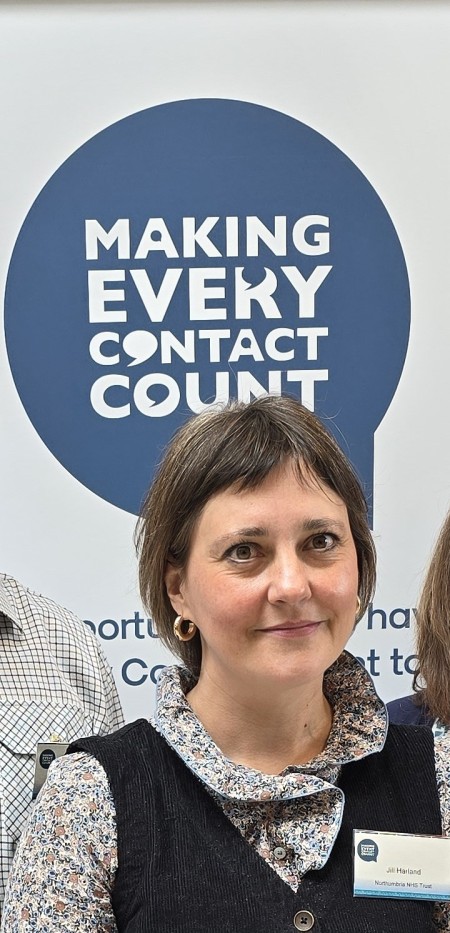Publish date: 26 July 2024
How we are making every contact count, and sharing our successes with others
As the public health lead for Northumbria Healthcare
This includes working to tackle health inequalities and all those wider factors which affect people’s health and wellbeing. One way we do this is through Making Every Contact Count (MECC).
MECC is all about public-facing colleagues taking the opportunity to talk to people about their health and wellbeing. The MECC approach can help us all to engage in conversations with people about opportunities to improve health by addressing factors such as smoking, alcohol, diet, physical activity, social isolation and mental wellbeing.
It is a whole-person approach which considers social circumstances such as finance, employment, social support and housing and how they impact people’s wellbeing too.
Within our trust, we have worked hard to train staff in MECC to embed the approach across our services as much as possible. We started off with a ‘Train the Trainer’ network, to train people who can then cascade it within their teams and departments.
We have followed that up with a more targeted approach, which has included building MECC into existing training and education programmes such as preceptorship, Care Certificate and Health and Wellbeing Champions.
And while our focus is primarily on the communities we serve, I am always keen for learning and good practice to be shared so that as many people as possible can benefit from better support for their health and wellbeing.
That’s why I am pleased to see our MECC work reflected in two recent national case studies.
The first is a guide for all acute settings on addressing health inequalities through MECC, which you can find here. It underlines how ‘trust staff see the value of MECC as a preventative approach, not just help people with their problems, but their futures’.
It is positive too that of the five case studies from around the country, two are from the North East, with our colleagues at North Tees and Hartlepool NHS Foundation Trust (now part of University Hospitals Tees) also highlighted.
Our MECC approach has also been used as a case study in an NHS England e-learning for healthcare programme - Maximising Population Health and Prevention in curricula – which aims to support education providers in embedding population health and prevention in their healthcare courses.
For more about MECC, the North East and North Cumbria MECC Gateway has a range of information and resources.
Jill Harland,
Consultant in public health, Northumbria Healthcare
Chair of North East and North Cumbria MECC
